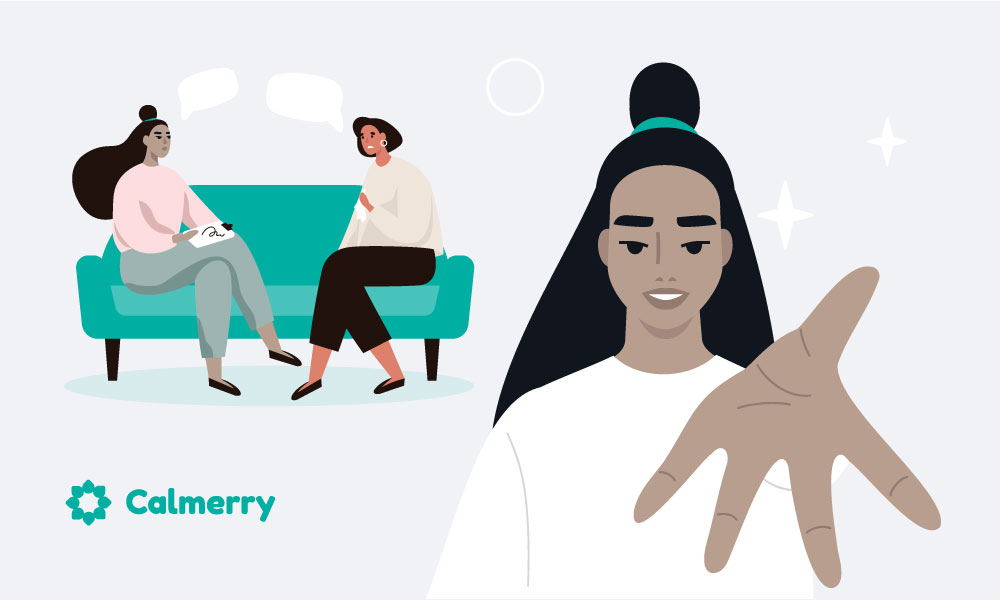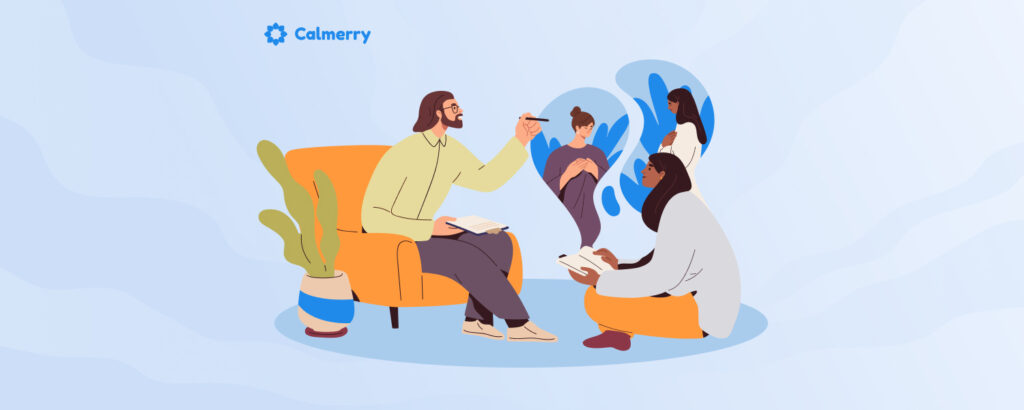The Power of the Therapeutic Alliance: What Is It, and Why Is It Important?
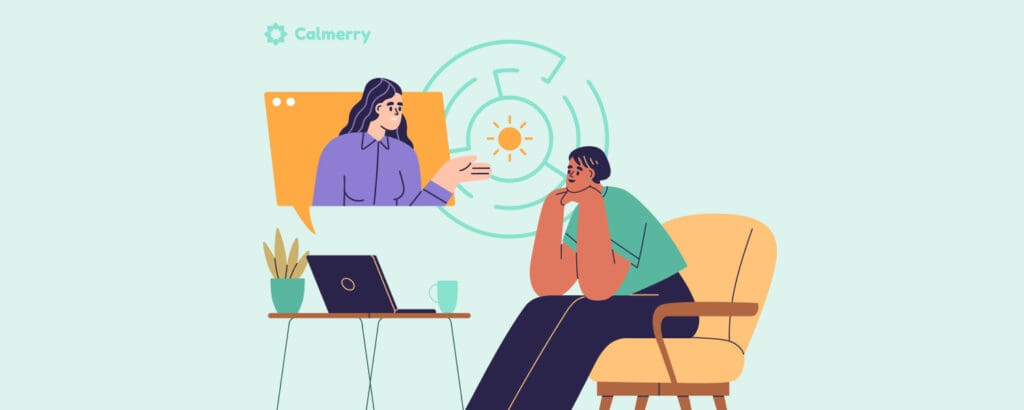
In this article
Most people don’t just want a therapist with experience and qualifications. They also want to genuinely like their therapist. They might describe this as trusting their therapist, feeling a connection with their therapist, or simply “clicking” with their therapist. All of these things describe the same thing: the therapeutic alliance.
The therapeutic alliance, also talked about as therapeutic rapport or the therapeutic relationship, is one of the most important factors in therapy. It’s not just a personal preference to want to feel a strong connection with your therapist – research actually proves that this connection is one of the things that can predict whether or not therapy will be effective for you.
Let’s talk about the power of the therapeutic alliance, and what you, as the client, can do to help build one with your therapist.
What is the therapeutic alliance?
A therapeutic alliance describes the relationship between a client and their therapist. It is an essential part of a positive therapeutic relationship, and research shows that it makes a big difference in the effectiveness of treatment.
The American Psychological Association defines therapeutic alliance as “a cooperative working relationship between therapist and client, considered by many to be an essential part of successful therapy.”
Building therapeutic alliance or rapport is an especially important task in the initial stages of therapy – in other words, during the first few sessions. But the alliance may need to be revisited or rebuilt further down the road as well.
History of the therapeutic alliance
The concept of the therapeutic alliance has been around since the very beginning days of psychotherapy itself. Sigmund Freud, named the grandfather of psychotherapy, talked about transference and countertransference, which are unconscious feelings that both the therapist and client may have about each other.
But Freud didn’t talk about the importance of things like empathy, understanding, and partnership – which we think of as vital components of the therapeutic alliance today. This more “modern” concept of the therapeutic alliance didn’t become fleshed out until the 1950s or 60s.
Carl Rogers was the father of humanistic psychology, which gained popularity in the 1950s. He outlined 6 core conditions that are necessary for therapeutic change, 3 of which are closely related to the therapeutic alliance:
- Therapist congruence: Therapists must be genuine in their concern for the client and not put on any facades.
- Unconditional positive regard: The therapist must feel that the client is worthy and care about the client no matter what, which builds a sense of trust.
- Empathy: The therapist must try to understand the world from the client’s perspective and communicate this understanding to the client.
Rogers believed that the therapeutic relationship was the most important piece of the therapy experience.
The trans-theoretical definition of the therapeutic alliance developed by Edward Bordin in the 1970s can be applied to all therapists, regardless of their theoretical background. Bordin stressed collaboration between therapist and client as essential, and defined 3 key components of a strong therapeutic alliance:
- Agreement on the goals of treatment
- Agreement on therapeutic tasks or “the work”
- Mutual positive feelings that creates a trusting and strong bond between therapist and client
Most mental health professionals today agree that this shared decision-making with their clients is key to successful therapy.
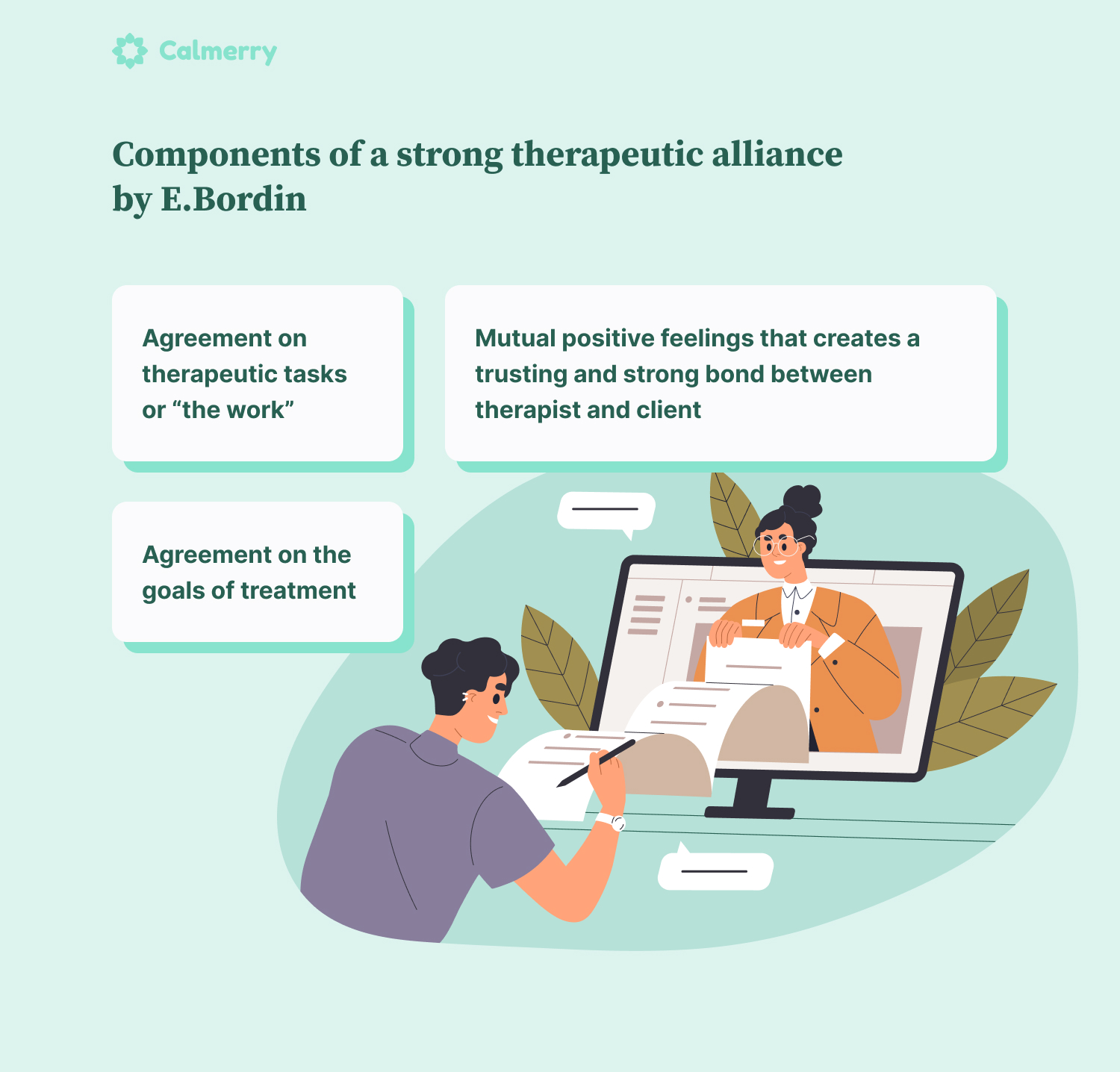
Why is having a strong therapeutic alliance important?
The therapeutic alliance is strongly considered one of the most important aspects of psychotherapy. Some of the many benefits of having a strong therapeutic alliance are:
Improved treatment outcomes
One of the strongest evidence-based benefits of building a strong therapeutic alliance is that it improves treatment outcomes. A large body of research has found that therapeutic rapport is one of the key indicators that determine whether or not a treatment will be successful. Some studies have even found that the same therapy model is less effective when a solid therapeutic relationship hasn’t been established.
That means that if you’re working with a therapist who you don’t feel connected to, treatment could be a waste of time. You’re in therapy to feel better and to heal – and having a strong therapeutic alliance can make it more likely that you reach these goals.
Stronger communication
Having rapport with your therapist can also help you feel more comfortable sharing about your experiences and emotions. Therapy is a deeply personal process – many people find themselves sharing things with their therapist that they haven’t shared with anyone else.
Having a therapeutic alliance helps you to open an honest and clear avenue of communication with your therapist. You aren’t afraid to say things to them.
On top of that, therapeutic alliance can also make it easier for your therapist to give you feedback. Sometimes, we need our therapists to help us confront difficult things. It’s easier to both give and receive that feedback when there is a strong underlying alliance that’s already been built.
Increased trust and safety
It’s difficult to share such personal things if you don’t have a basic level of trust with your therapist. And it’s difficult to build trust if the therapeutic alliance isn’t there. It’s important for you to feel that you can be completely yourself with your therapist, without fear of being judged.
When you have a strong therapeutic alliance with your therapist, you feel emotionally safe. You feel like you can be vulnerable in front of your therapist and show your true emotions. This is an essential part of working through some of your most painful emotions and past experiences.
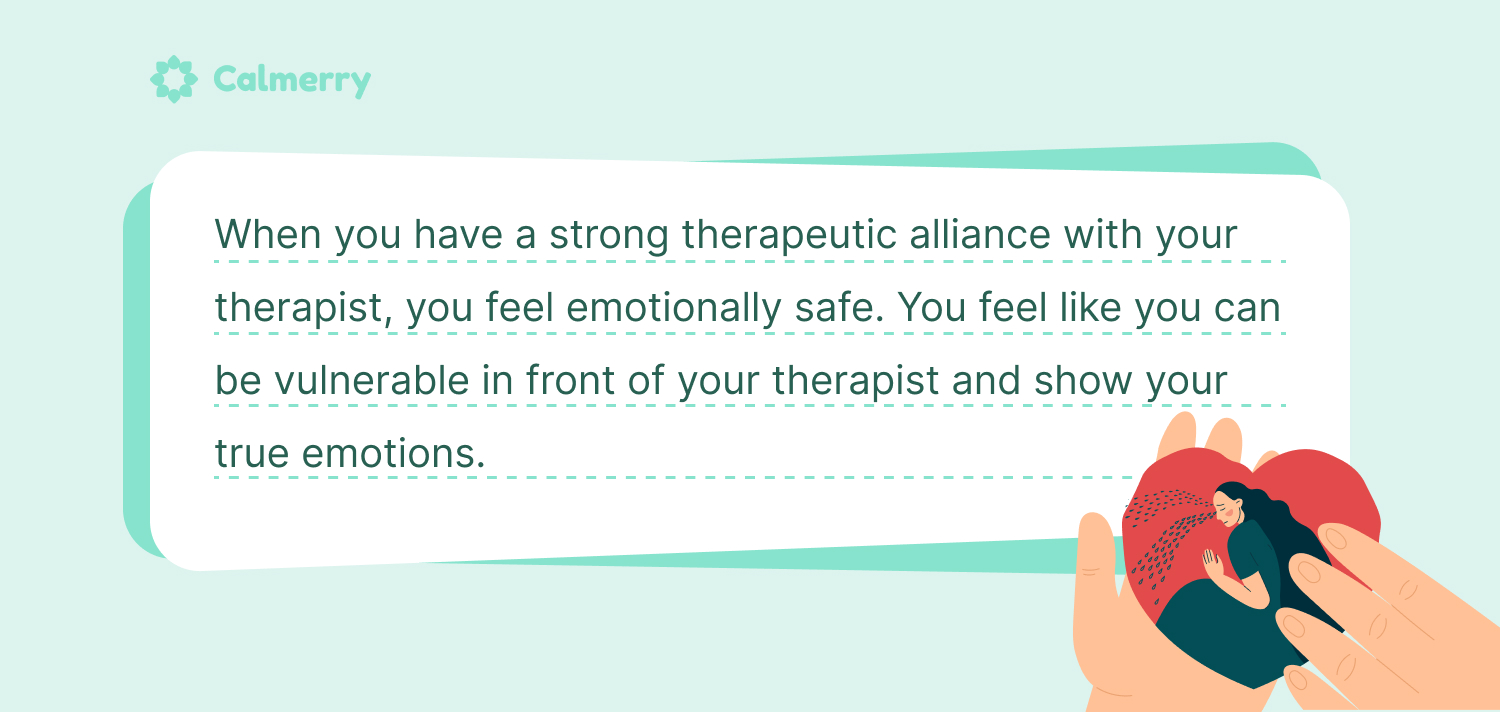
Your role, as a client, in developing therapeutic alliance
A lot of the responsibility of creating a therapeutic alliance falls on the shoulders of the therapist. For example, they must create a safe environment in which you feel comfortable enough to explore your experiences even when it may be uncomfortable. When you do share, they must meet you with empathy and understanding rather than judgment.
But you, as the client or patient, also have a role to play in developing therapeutic alliance. An alliance is a working relationship – meaning that both of you play a part.
Here are some things that you can do to help build a strong relationship with your therapist.
Be honest
It’s difficult to build a therapeutic alliance if you hide things from your therapist. It’s completely understandable to feel a fear of judgment. This may stop you from being totally honest in therapy. But for a therapeutic relationship to be built, you need to be honest.
If you’re having a hard time being yourself with your therapist, let them know. Don’t be afraid to give your therapist direct feedback. It’s better to be honest and transparent with your therapist than to pretend that everything is fine.
You might say something like: “I am looking for ways to be able to practice real skills outside of these therapy sessions to combat my anxiety. I appreciate the conversations we have, but I’d like for you to give me more tangible tools.”
Contribute to decision-making
A key piece of Bordin’s model of therapeutic alliance is shared decision-making around treatment goals and therapeutic tasks. Don’t go into therapy expecting your therapist to make all important decisions for you. What you need and want for your life matter the most.
Contribute to decision-making. Let your therapist know why you’re in treatment, and what you hope to gain. Tell them what you are looking for in a therapist, and discuss your most important goals. Let your therapist know what has and hasn’t worked for you in the past. In this way, you can form a healthy alliance in which you are working together toward your well-being.
Do the work
Therapy isn’t like other health interventions, in which the patient kicks back while the medical professional does something to them (like surgery). You can think of it like this: The therapist doesn’t do therapy to you – they do it with you. And therapy will not be successful if you don’t put in the work.
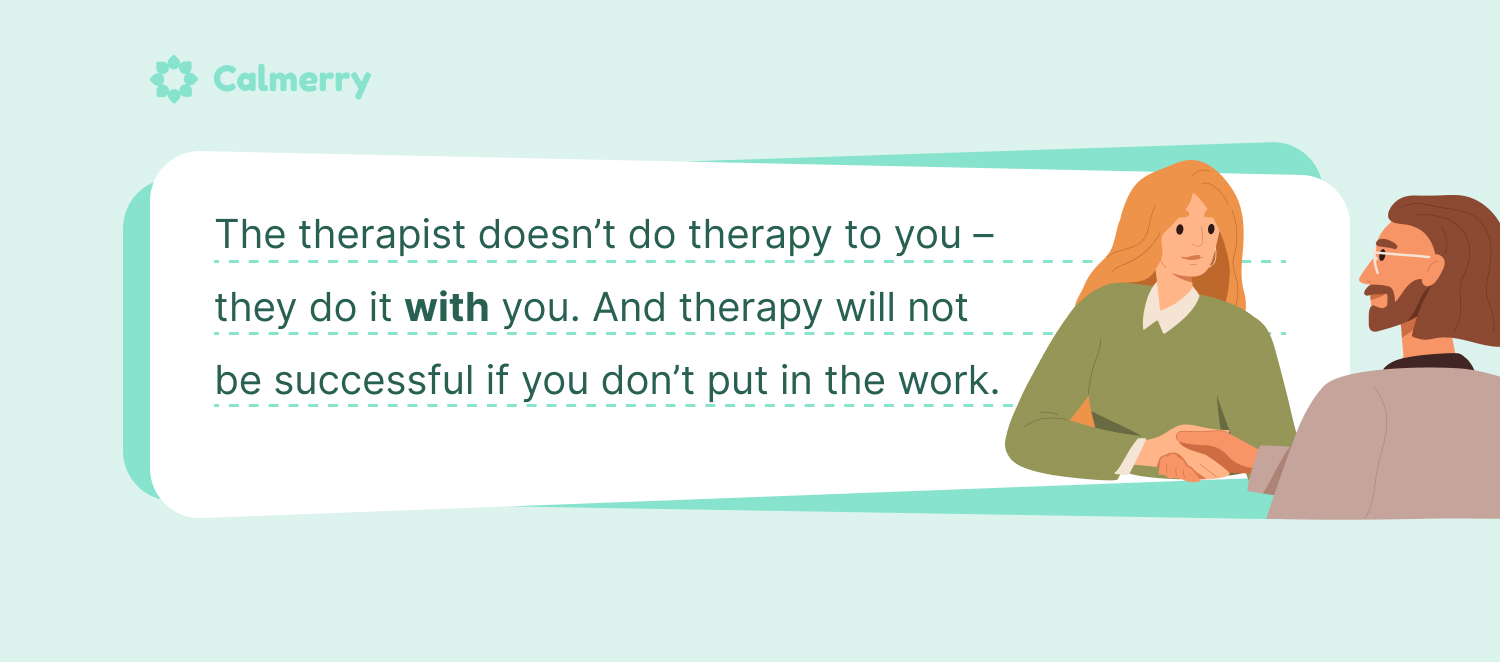
“The work” may look differently depending on what type of therapy you’re in. Your therapist may assign you homework assignments to practice skills between sessions. They may ask you difficult questions that require a deep level of self-reflection.
No matter what it is that’s being asked of you, if you don’t do your part, then it’s unlikely that therapy will be effective. A strong therapeutic alliance is about both of you working together.
Choose your therapist wisely
There may be some therapists that won’t be a good fit for your needs, no matter how understanding and empathetic they are. For example, if you’re looking for someone to help you cope with OCD, then a therapist who specializes in post-traumatic stress may not be a good fit.
If you’re looking for a short-term, solution-focused therapy experience, then a therapist who comes from a psychodynamic background may not meet your needs.
There are other important factors to consider as well. People, especially people who have been marginalized by society, tend to do better with therapists who belong to those same groups. For example, research shows that Black people tend to do better in therapy with Black therapists. These are all important things to consider when choosing a therapist.
Choosing the right therapist for you and your mental health needs can make it more likely that you can build a strong therapeutic alliance with them.
At Calmerry, we pair you with the therapist that’s the best fit for your needs. We deeply understand how important a strong therapeutic alliance is in your treatment process. If you don’t feel a connection with your therapist even after working with them, you can contact our customer support team and we’ll match you with another therapist without charging you anything.
online therapy
live video session


